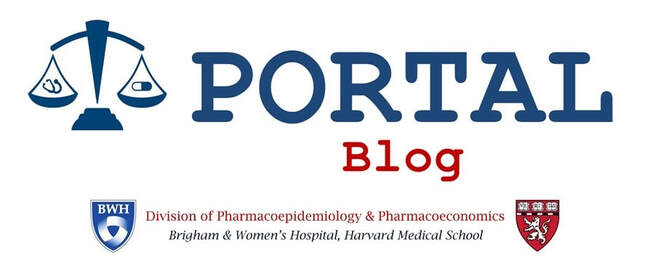Association between FDA and EMA expedited approval programs andtherapeutic value of new medicines10/7/2020
Kerstin N. Vokinger
Most novel drugs that are introduced in clinical practice globally are first approved by the US Food and Drug Administration (FDA) and European Medicines Agency (EMA). Over the past two decades, both regulatory agencies have established expedited programs, which are intended to prioritize the drugs expected to provide an improvement over available therapies. These programs are increasingly the route by which most new drugs are approved. But since many new drugs are approved on the basis of placebo controlled trials or single-arm studies, the therapeutic value of drugs benefiting from the FDA and EMA expedited programs is uncertain. An international research group with researchers from PORTAL, Yale School of Medicine, and the University of Zurich (Switzerland) evaluated the association between expedited programs and ratings of therapeutic value for all new drugs approved by the FDA and EMA from 2007 through 2019. We applied ratings of therapeutic value published by health authorities in four countries (Canada, France, Germany, and Italy) and an independent non-profit organization (Prescrire). From 2007 to 2017, the FDA approved 320 and the EMA 268 new drugs. Among the 320 new drugs approved by the FDA, 181 (57%) qualified for at least one expedited program. By contrast, 39 (15%) of the 268 new drugs approved by the EMA qualified for an expedited program. Overall, 31% (84/267) of FDA drug approvals and 31% (83/267) of EMA drug approvals were rated as having high therapeutic value by at least one organization. Among FDA approved drugs with at least one available therapeutic value rating, 45% (69/153) of expedited drugs were rated as having high therapeutic value, compared with 13% (15/114) of non-expedited drugs (P<0.001). Among EMA approved drugs with at least one available rating, a greater proportion of drugs qualifying than not qualifying for accelerated assessment were rated as having high therapeutic value (67% (18/27) v 27% (65/240); P<0.001). This was not the case for conditional marketing authorization (31% (4/13) v 31% (79/254); P=0.98). Overall, less than one-third of all new drugs approved by the FDA and EMA were rated by any of five independent organizations as having high therapeutic value—that is, providing moderate or better improvement in clinical outcomes for patients—although expedited drugs were more likely than non-expedited drugs to be highly rated. Policymakers and regulators should implement therapeutic value ratings more broadly for new drug approvals, aligning the evidentiary needs of regulatory approval and reimbursement decisions, and informing patients and physicians about the benefits and risks of new drugs, especially those approved via expedited programs. It's interesting to know that FDA certification registration services would have established expedited programs to prioritize drugs them. I can imagine how important it would be to have such services to help you out with your products and prevent any violations. It would definitely save a company from expenses lost in the process due to the regulations. 11/6/2023 06:06:36 am
One aspect that stood out to me was the emphasis on the need for a balanced approach. While speed is undoubtedly important, ensuring the therapeutic value and safety of new medicines should never be compromised. Striking this balance is crucial to maintain public trust in the pharmaceutical industry and regulatory bodies. Comments are closed.
|
AuthorPORTAL Blog posts are authored by PORTAL faculty, trainees, and collaborators. Archives
January 2022
Categories |
|
Program On Regulation, Therapeutics And Law (PORTAL)
Division of Pharmacoepidemiology and Pharmacoeconomics 1620 Tremont Street, Suite 3030 Boston, MA 02120 |



 RSS Feed
RSS Feed
